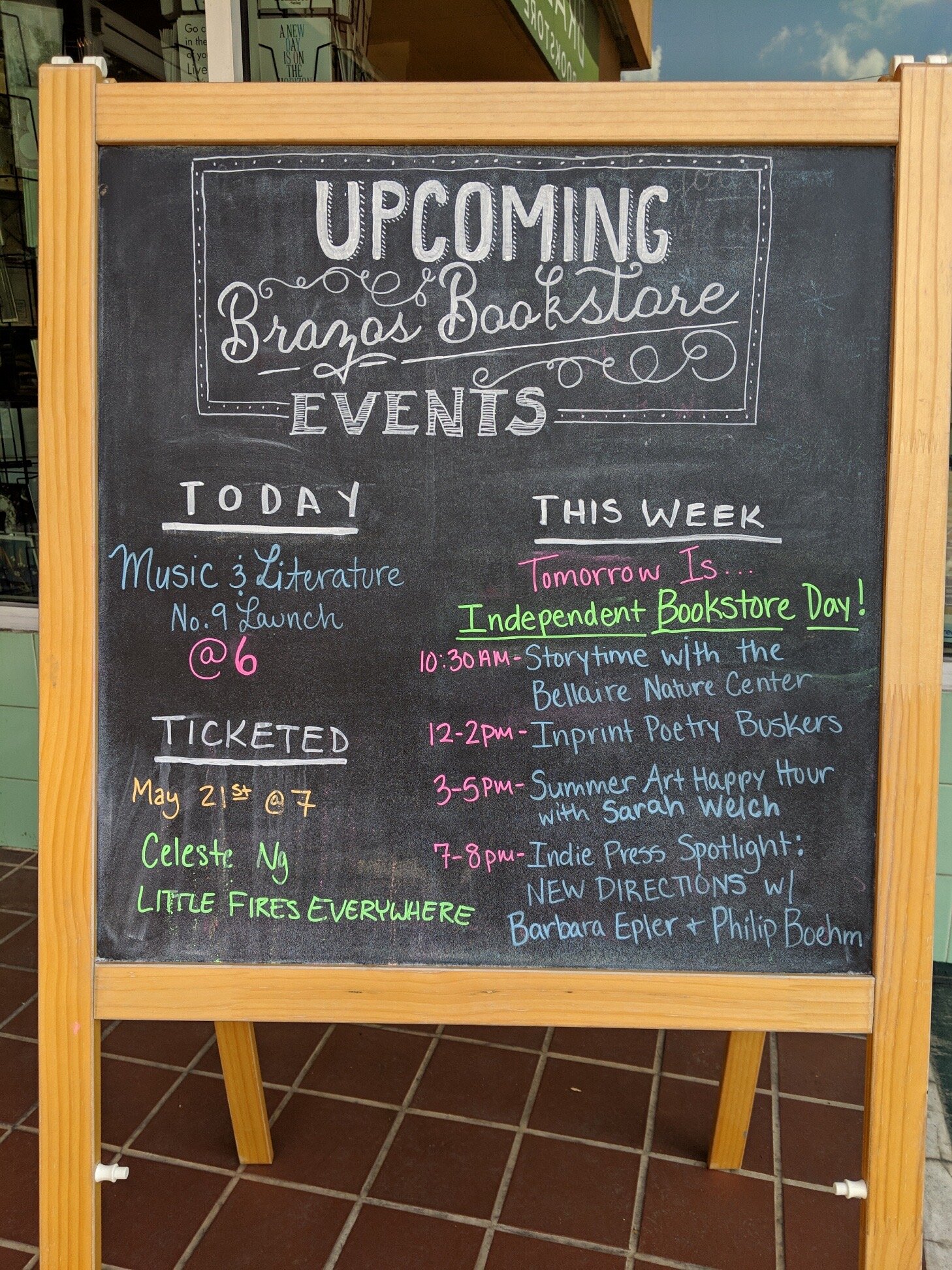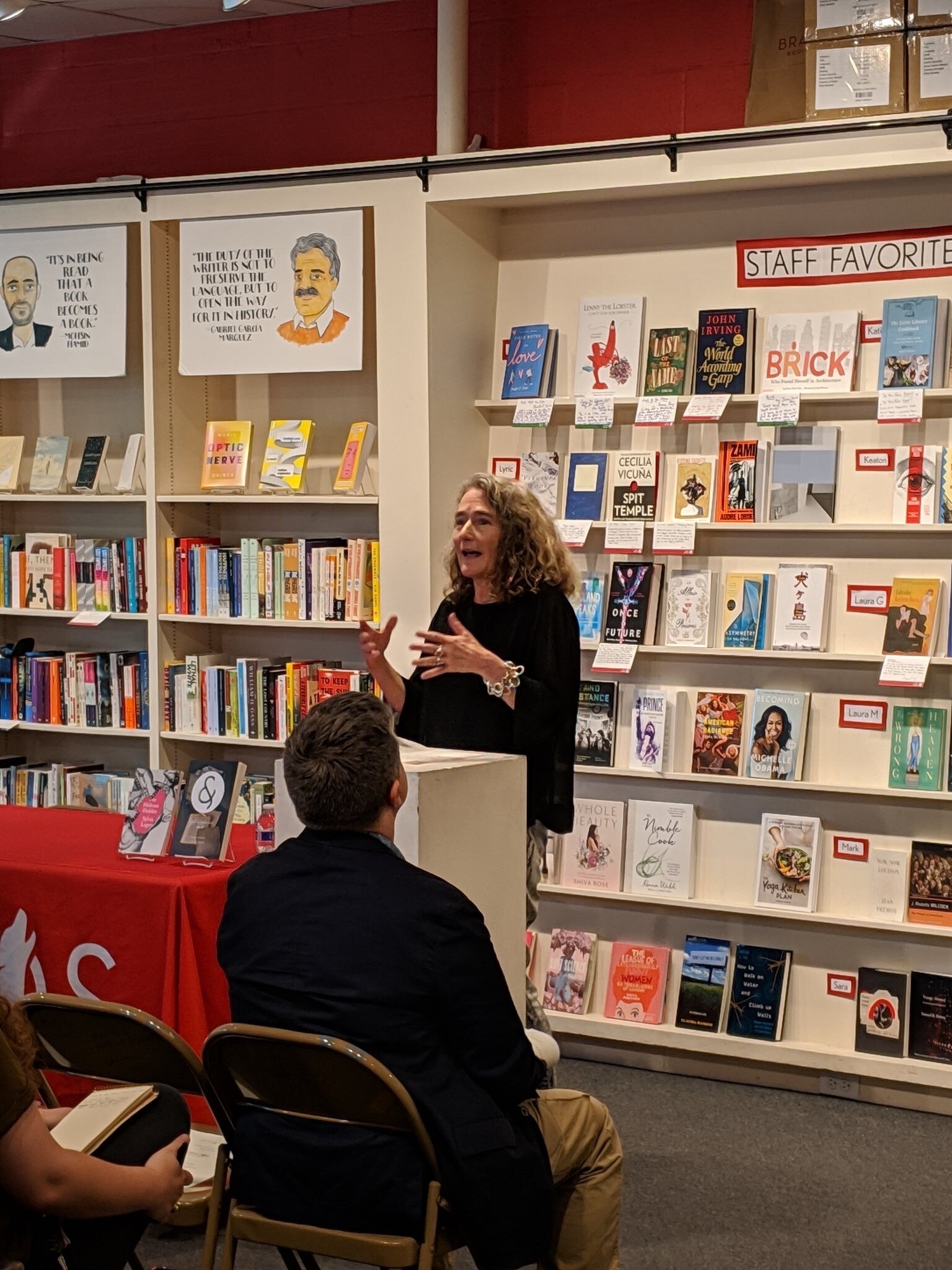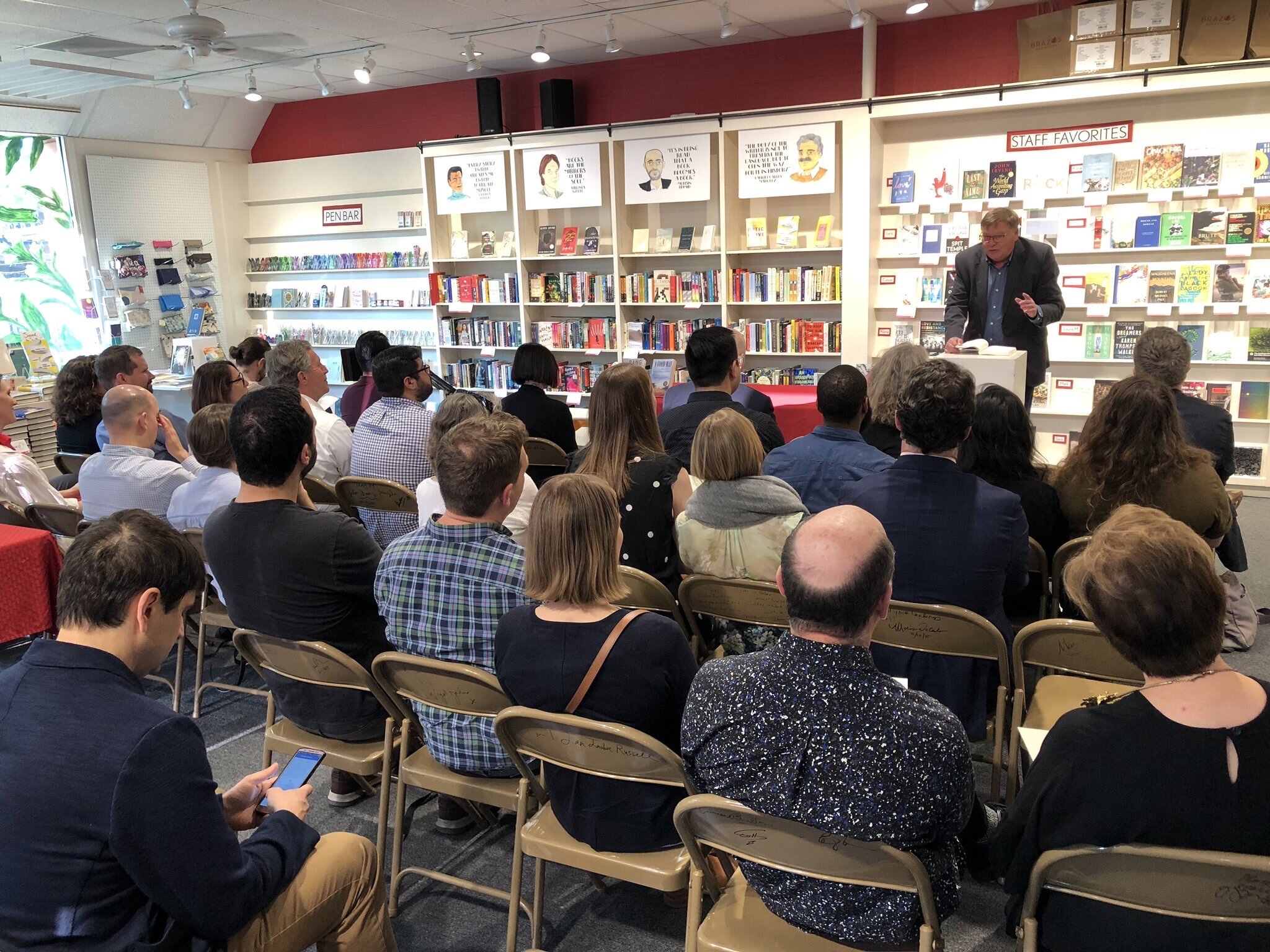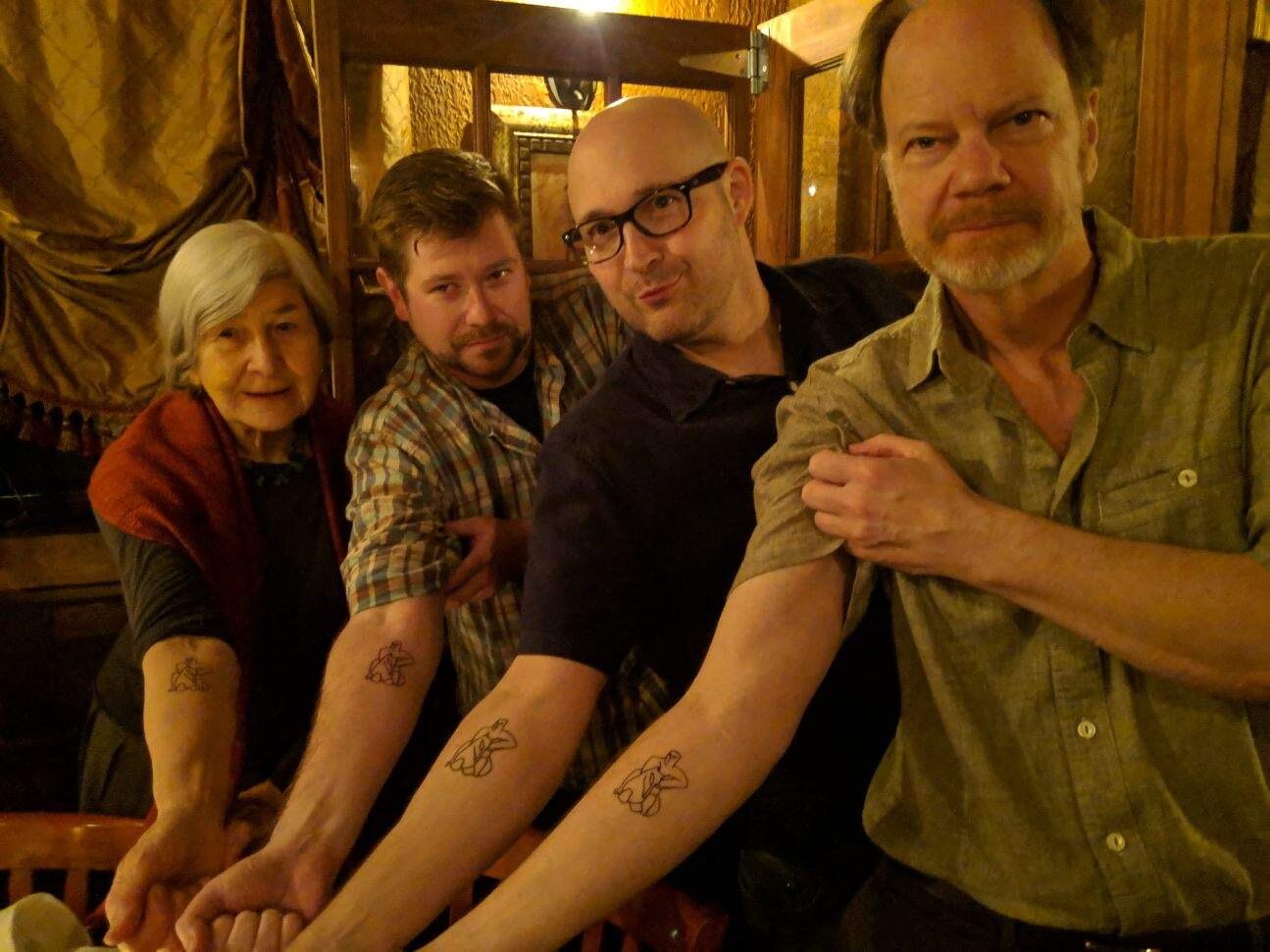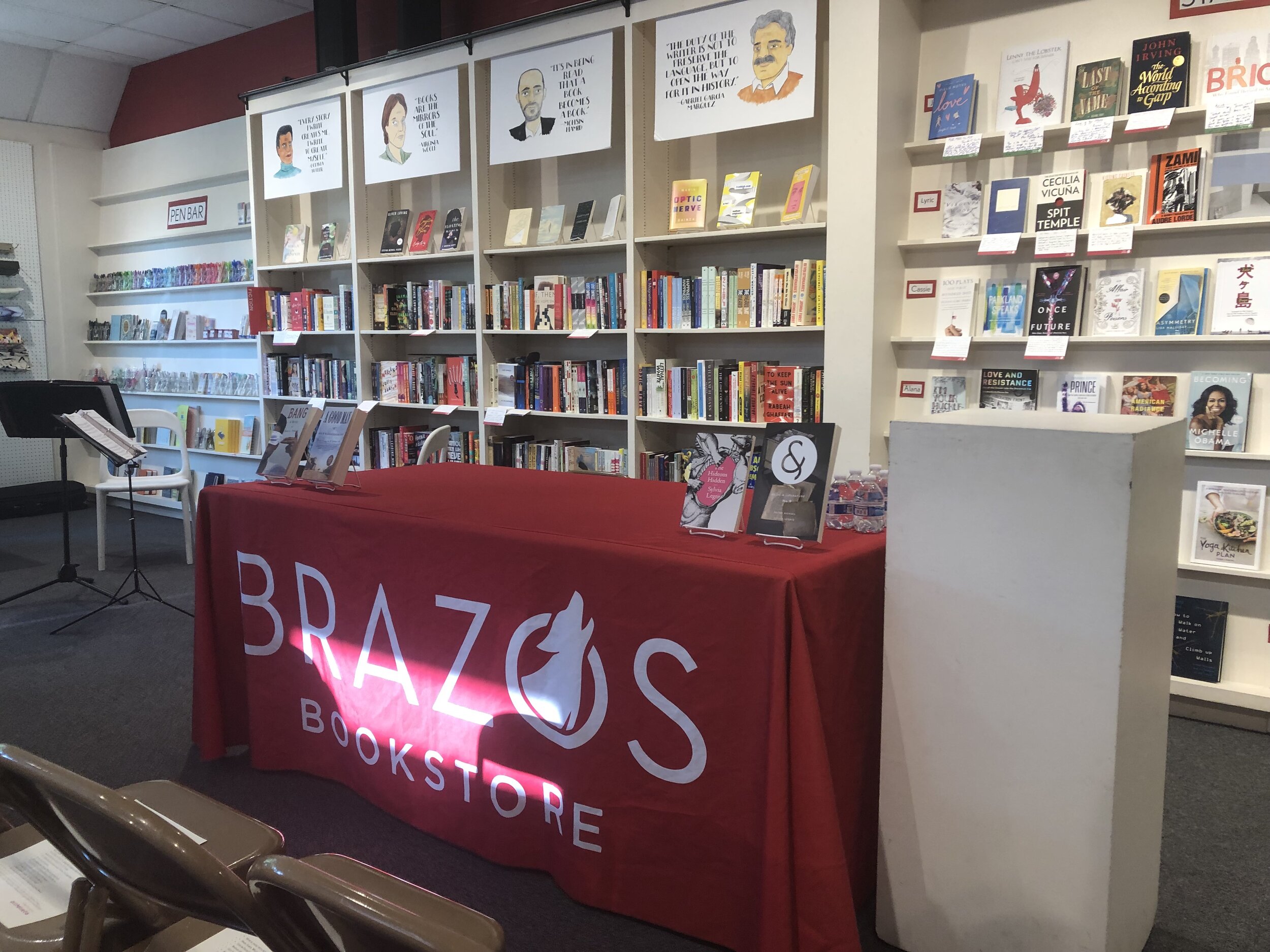THE houston LAUNCHES OF MUSIC & LITERATURE NO. 9:
university of houston-downtown / 25 april 2019
brazos bookstore / 26 april 2019
Sylvia Legris reads from her work in M&L no. 9. Photo courtesy Madelyne Lehnert.
In late April 2019, students in Daniel Peña’s creative writing class at the University of Houston-Downtown were presented with a rare opportunity: to ask all their most pressing questions about the craft of two great contemporaries, the Canadian poet Sylvia Legris and her partner, award-winning novelist Guy Vanderhaeghe. The most salient takeaway was perhaps the simplest: to read. “Read out loud, read anything, read things you do not understand in order to figure out what the language means, and what language means in forms of music,” Legris counseled. True to her work, in which musicality is always a central organizational tool, the poet also told the students that the next important thing in literature is the “echo” that it carries.
This classroom visit was the first in a series of events arranged to help celebrate the release of Music & Literature no. 9, which features Legris’s slim but mighty body of poetry alongside the work of Swiss writer Peter Bichsel. At a reading at the university later that day, Legris read aloud from The Hideous Hidden, a book of poems that continually play with rhythm and sound through anatomical ontologies. In her voice, the stanzas became melodies.
The following evening, Legris and Vanderhaeghe were invited to Brazos Bookstore for the public launch of Music & Literature. The event was intimate, but not lacking in literary figures. Among these were Mark Haber (of Brazos Bookstore), Taylor Davis-Van Atta (founding editor of M&L), Barbara Epler (director of New Directions Books, Legris’s U.S. publisher), the poet Joseph Campana, and musical artists Albert Cofrin and Joachim Zwick.
Epler kicked things off by lamenting the difficulty of choosing, out of so many worthy submissions, which books to publish. And yet, she assured the audience, sometimes the answer is clear as day: “What we could not turn down was Sylvia’s book.” She then read, not a single Legris poem, but the final lines of three; through each one flies a hummingbird, the famous singer becoming another of the poet’s exquisite musical themes. Vanderhaeghe followed, introducing his story “Sylvia the Gardener” by remarking on the “terror” that filled him at the idea of trying to write about a poet. When he finished reading, Legris rose and stated, “I feel like I’m going to start crying.” But she steeled herself and read some of her work premiering in M&L no. 9.
Legris performed these pieces like a stage actor, articulating new meanings with her body, with the cadences of her voice and the emotions coursing through it. She never paused between her poems, nor even read their titles. She moved along each one as if it were a song and she had to keep the rhythm going, expertly demonstrating the advice she had given the day before, and in the process extracting more from her poetry than a reader of the page ever could.
Daniel Peña in conversation with Sylvia Legris at Brazos Bookstore. Photo courtesy Mark Haber.
The room was alive with nods and hums of appreciation. After an intensely engaging discussion between Legris and Daniel Peña, which dug deep into the origins of Legris’s poetics and the long (and continuing) evolution of her practice, Joseph Campana took the stage to read two Peter Bichsel pieces: “There is No America” and “To Tell About Paris.” With these final readings, Campana expertly showcased Bichsel’s humor, summoning the character of Columbine trying to convince his compatriots of the existence of a “new world.” Campana’s theatrical performance left the packed room smiling and in fine spirits.
The night concluded by indulging in Legris’s adoration of the viol da gamba—a cello-like instrument popular in Bach’s time—with a performance by early music specialists Albert Cofrin and Joachim Zwick. Sylvia remarked that engaging with the instrument had enhanced her artistic practice, for she could feel it echoing and resonating in her body.
—Madelyne Lehnert
Special thanks to the University of Houston-Downtown and the Cultural Enrichment Center for their support of these events.
